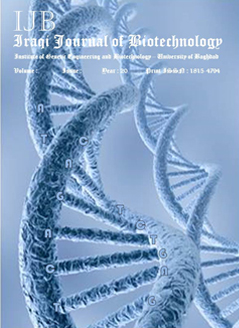The correlation between KRAS mutations and H. pylori in gastric cancer patients
Abstract
Helicobacter pylori (H. pylori) is the most important etiologic factor for gastric cancer ,it is one of the most common human pathogens, which colonizes in the mucus layer of the gastric epithelium in more than 50% of the population. It is the only bacterium that classified as a class I carcinogen by the WHO .The clinical outcomes of H. pylori infection is determine by host genetic predisposition, bacterial virulence factors, and environmental factors. H. pylori can induce chronic inflammation and oxidative stress that provides a permissive environment to DNA damage, this damage can lead to genetic instability and eventually, neoplastic transformation. KRAS is one of the most frequently mutated oncogenes in human cancers, in particular in pancreatic, colorectal and lung cancers. However, oncogenic mutations of KRAS are infrequent in gastric cancer. Point mutations of the KRAS are found predominantly in adenocarcinomas. Codons 12 and 13 are the most frequently detected mutation “hot spots”, they make the protein resistant to GTP hydrolysis by GTPases, thereby leading to constitutive KRAS activity. The results revealed that no mutations in codons 12 or13 detected in all patient groups, but the sequencing analysis detected other mutations in exon 2. These mutations were found in 7 /20 (35%) patients of HIP-GC group, 5/16(31.25%) patients of HIN-GC group and 4/15(26.7%) patients of the ulcer group.


